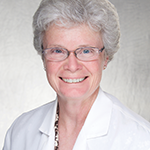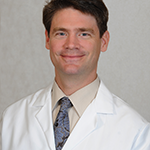Although some of his peers stay involved in advocacy, volunteer or mentor roles in rheumatology, he chose to step away for the most part, he says. He keeps up with advances in rheumatology by reading, tweets occasionally and drops notes to former colleagues, but that’s about it.
“It is hard to give up both the research aspect of what I was doing in my career as well as patient care, because I went into medicine for both of those things,” says Dr. Klippel, who still receives Christmas cards from former patients. “I had the pleasure of combining my research interests, trying to pursue the answers to questions that were relevant to my patients, with patient care. I never knew the freedom that exists in retirement. When you’re in a hectic, stressful career, even if you enjoy it, you make sacrifices. You don’t really explore who you are as a person.”
‘When you’re practicing medicine, stress & sleep deprivation are such major parts of your life. Retirement has been such an amazing relief.’ —Harry Gewanter, MD
Identity Shifts
Talk over retirement plans, including dreams and anxieties, with family or confidantes, Dr. Heck advises. Financial planning for retirement as early as possible is also wise, he says.
“I would tell any rheumatologist who is thinking about retirement to listen to your heart. Your brain is on overdrive when you’re in clinical medicine or research. You are doing tremendous good, but there is a point when your lifestyle has to change,” he says.
Dr. Gewanter jokes about much more relaxed he feels after decades in clinical practice.
“I didn’t realize my baseline level of stress while I was working in the office. I struggled to adapt to our electronic health record systems, and it just felt like I was always climbing Mt. Everest. To be able to walk away from it was an immense relief. When you’re practicing medicine, stress and sleep deprivation are such major parts of your life. It’s like background noise. Retirement has been such an amazing relief,” he says.
Dr. Gewanter can now help his wife, who works as a surgical nurse, care for their sons, including one who has Down syndrome and one being treated for Hodgkin’s disease. Recently, he was at the hospital with his son, and the mother of one of his former patients recognized him.
“Her children were now grown and in college. She remembered something that I had said 20 or 30 years ago. How cool is that?” says Dr. Gewanter. “That’s what happens when you practice medicine. But you don’t really see it until you retire. You just don’t know the ripples you create. It’s humbling.”

